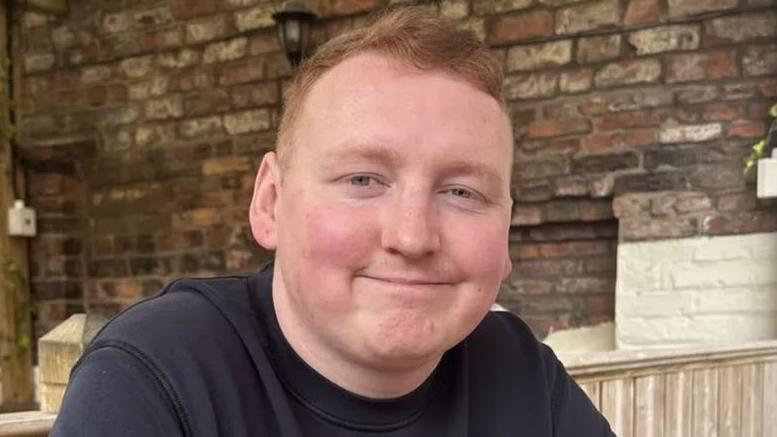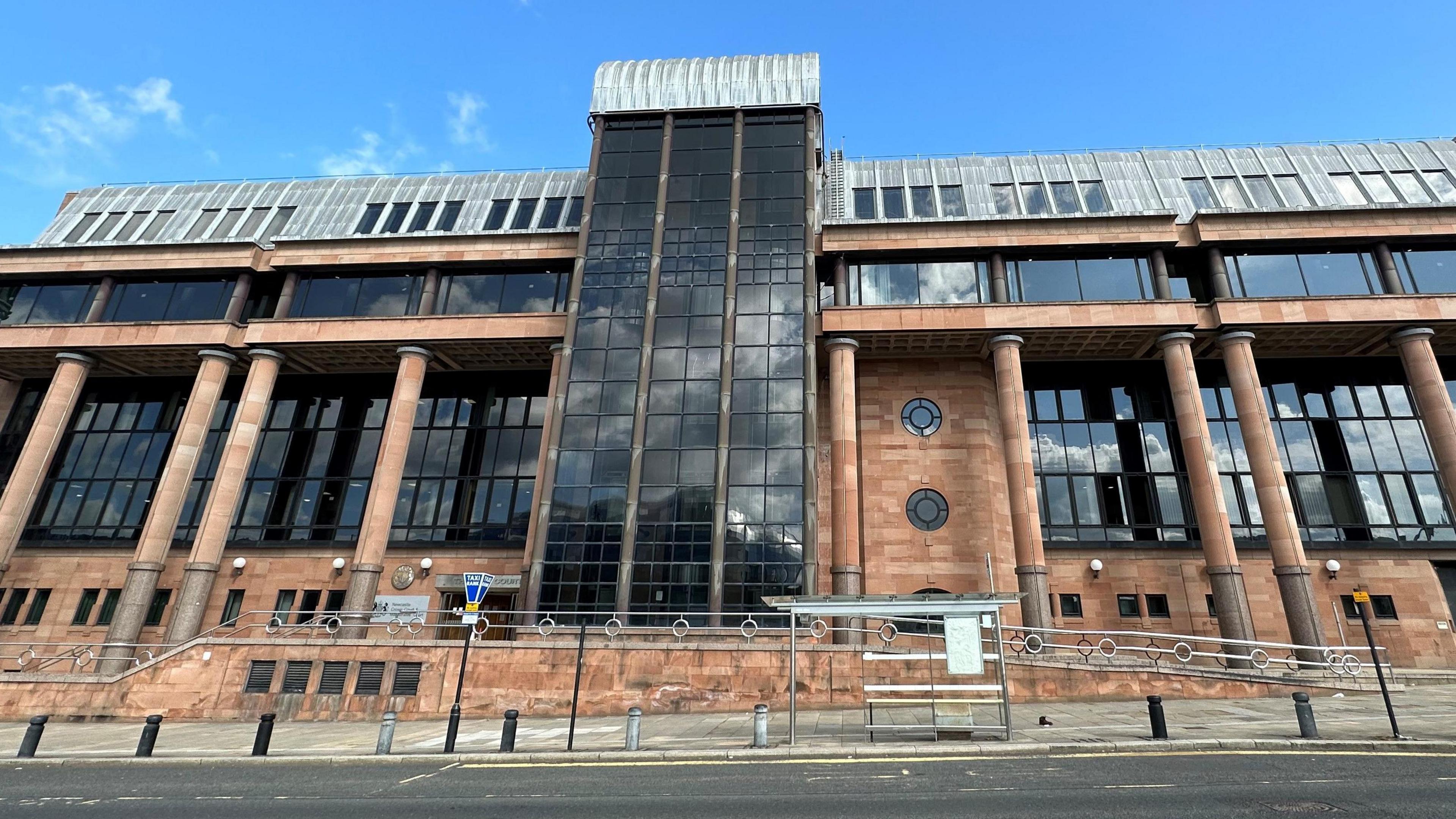Case against ammonia murder accused 'deeply flawed'

Andrew Foster died after being sprayed in the face with ammonia
- Published
The evidence against one of four men accused of murdering a drug dealer in an ammonia attack is "deeply flawed", his lawyer has told jurors.
Andrew Foster, 26, died from an asthma attack after being sprayed in the face at his home in Gateshead in August.
Four men deny his murder but have declined to give evidence at their Newcastle Crown Court trial.
Their lawyers have been giving their closing speeches ahead of jurors retiring to consider their verdicts.
Prosecutors said Mr Foster was killed in a so-called "taxing" raid between drug dealers and the attack on 20 August was the fourth in 11 days organised by defendant Youssef Wynne across South Tyneside.
Prosecutor Mark McKone KC has told jurors the attacks, including one in which a woman lost an eye, were carried out by Mr Wynne's "enforcer" Paul Fawcett who was assisted on the last three occasions by John Wandless.
The prosecutor said jurors should draw an adverse inference from the defendants declining to give evidence.
However, their lawyers said they were entitled not to take to the witness box, the court heard.

Four men are on trial for murder at Newcastle Crown Court
In his closing speech for Mr Facwett, Francis Fitzgibbon KC told jurors: "The evidence that purports to identify [Mr Fawcett] is deeply flawed and not nearly enough for you to say you are sure it is him."
He said even if jurors thought he was involved, they could "not be sure he had the intention" to "cause that level of harm to anybody".
Mr Fitzgibbon said there was "no direct evidence" linking Mr Fawcett to the "brutal and horrific attacks" and the police and prosecution had not arranged for any witnesses to identify the attackers.
He said the "greatest failure" of the prosecution was the "lack of conclusive evidence" they provided and their failure to address the "real danger of mistaken identification".
Mr Fitzgibbon said there had also been "not a sausage" of forensic testing by police at three of the crime scenes and prosecutors had stuck together "random bits and pieces" to make "circumstantial" evidence.
On the issue of not giving evidence, Mr Fitzgibbon said it was Mr Fawcett's "legal right" to say to the prosecution "prove it" and there was "simply no need for him to give evidence because the case against him has failed on its own terms".
'World's worst hitmen'
Mr Fitzgibbon said he was not accusing police officers of a "malevolent conspiracy" or "fitting up" the men, but rather they were following "confirmation bias" about the four who were known to be involved in dealing drugs.
He said Mr Fawcett did have ammonia at his house, but it was used for making crack cocaine, adding if he and Mr Wandless had been involved in the attacks they would be the "world's worst hitmen" for keeping the "murder weapon" at their homes.
Mr Fitzgibbon said Mr Foster's death was "of course a tragedy" but he was "deeply involved in the drugs world" which was a "dangerous business".
The court has heard Mr Foster made cannabis sweets which Mr Fitzgibbon said was on a "wholesale" scale and was "no doubt lucrative".
He said the prosecution claimed Mr Wynne had hired Mr Fawcett to "harm or kill" his "one time business partner" Mr Foster, yet he "had no reason to harm Mr Foster and every commercial reason not to".
Mr Fitzgibbon said: "Doesn't that explode the [prosecution] theory?"
He also said the victims in the other three attacks were not involved in drug dealing which scuppered the prosecution's claim that "taxing" raids were being carried out.
'Not a killer'
In her closing speech, Mr Wandless' barrister Caroline Goodwin KC said the quality of CCTV footage of the various attacks was "very poor" and her client could not be identified in any of it.
Ms Goodwin said Mr Wandless was friends with Mr Fawcett and the pair exchanged numerous phone calls but the prosecution had put a "spin" on those communications, in which what was actually said was not recorded, to suggest her client had been "recruited" for the attacks.
She said Mr Wandless accepted destroying the car allegedly used to transport Mr Foster's attackers, but that did not mean he was involved in the murder.
She said jurors "might not appreciate the lifestyle" of Mr Wandless but that did not mean he was guilty.
Ms Goodwin said he had admitted being involved in violence and inflicting injury to people previously, but that did not make him a "killer".
It was for the prosecution to prove his guilt, not for him to prove his innocence so his refusal to give evidence should not be used against him, Ms Goodwin said.
"You cannot be sure [of his guilt] on this evidence and we invite you to find him not guilty," Ms Goodwin told jurors.
The defendants and their charges are:
Youssef Wynne, 39 and of Wuppertal Court, Jarrow, denies murder, robbery, assault causing actual bodily harm, inflicting grievous bodily harm and two counts of attempting to cause grievous bodily harm with intent
Paul Fawcett, 33 and of Balkwell Avenue, North Shields, denies murder, robbery, inflicting grievous bodily harm and two counts of attempting to cause grievous bodily harm with intent
John Wandless, 33 and of no fixed abode, denies murder, robbery, inflicting grievous bodily harm and attempting to cause grievous bodily harm but admits handling a stolen VW Golf and arson for destroying the car
Josh Hawthorn, 22 and of Ashfield, Jarrow, denies murder and robbery
The trial continues.
Follow BBC North East on X (formerly Twitter), external, Facebook, external and Instagram, external. Send your story ideas to northeastandcumbria@bbc.co.uk.